We Make the City: Next Generation Cities
This post was live blogged. Entries are in reverse chronological order.
11:30:03
Next up: Dan Hill (Associate Director, Arup). He’s a visiting professor at UCL Bartlett “Institute of Innovation and Public Purpose” and “Mayor of London Design Advocate”.
(So this is going to be a follow-up of Theo’s presentation to give details of the City of London’s Smart City Panopticon efforts.)
I won’t be live blogging this, see the previous talk notes for my thoughts on the matter.
11:27:08
I just called him out in a question for following neoliberal/Silicon Valley talking points and asked him “what would you say to those who might say that your goal is to make London into an ever better panopticon.” Also asked him how he feels partnering with Google Deepmind and other surveillance capitalists and exposing the citizens of London to surveillance by these factory farmers for human beings.
The response was essentially that he doesn’t see a problem with surveillance capitalism.
11:03:14
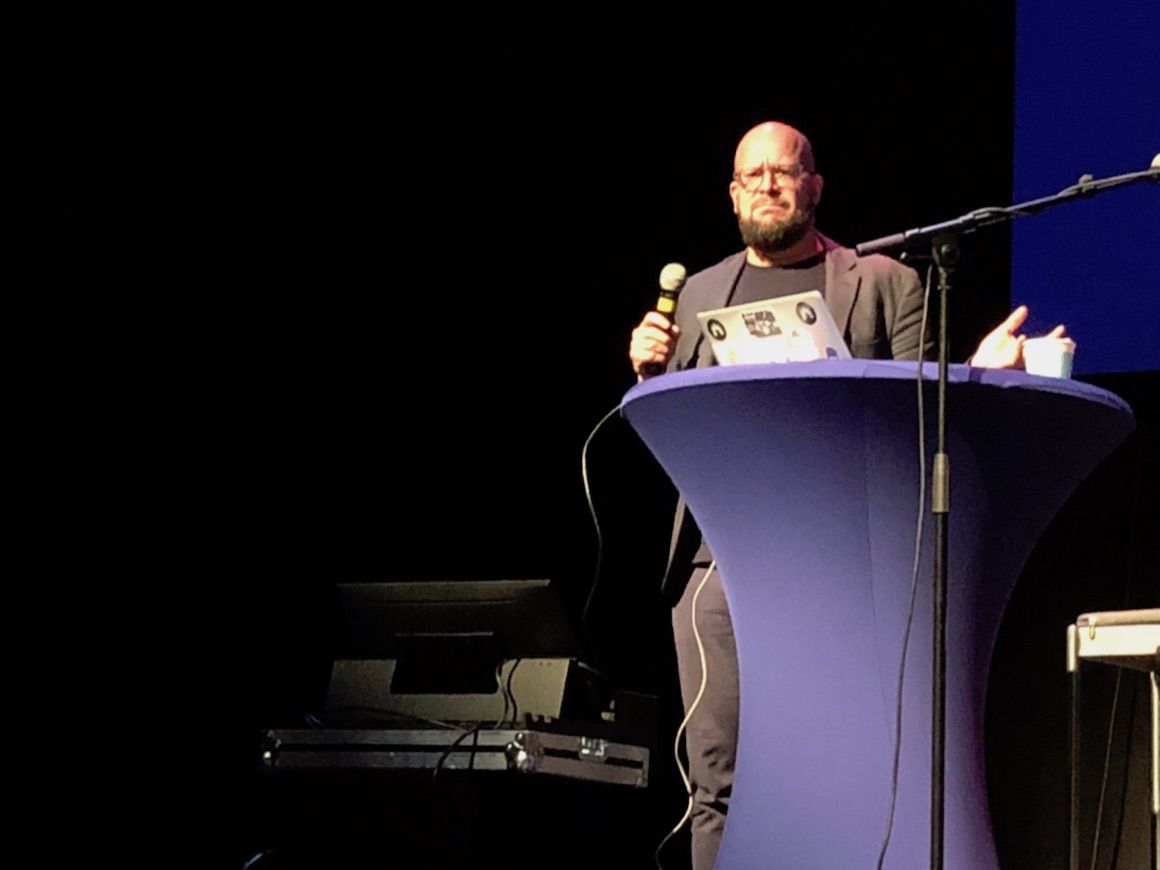
Next up: Theo Blackwell, CTO London.
“We need to set the foundations for innovation.” (There’s that word again.)
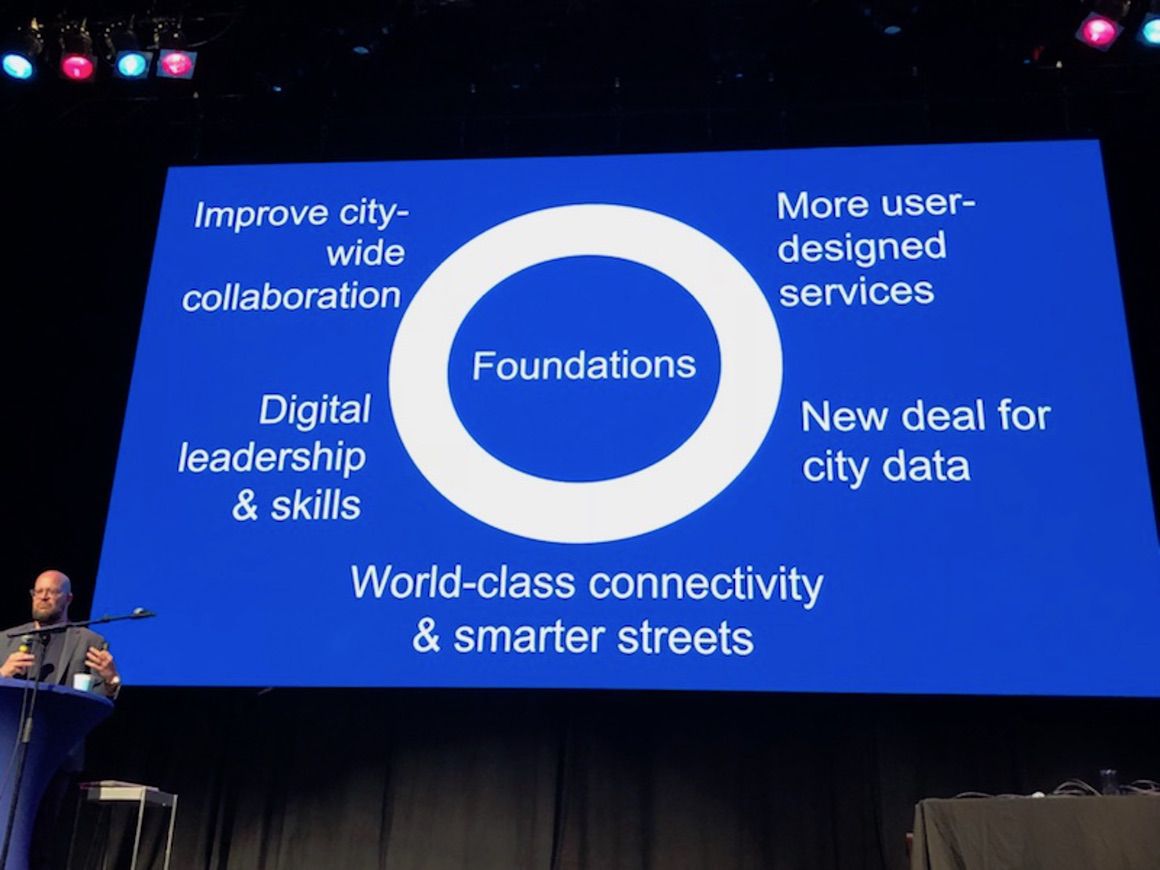
Theo Blackwell outlining his plans for making London an even better panopticon.
Theo is basically parroting neoliberal/Silicon Valley talking points.
London has… “Hundreds and hundreds of systems that collect data on people.” (Oh, yay!)
Essentially, the City of London’s strategy from what I’m hearing is that they want London to become an even better panopticon.
(I’m done live blogging this session. It’s clear what it is.)
11:01:28
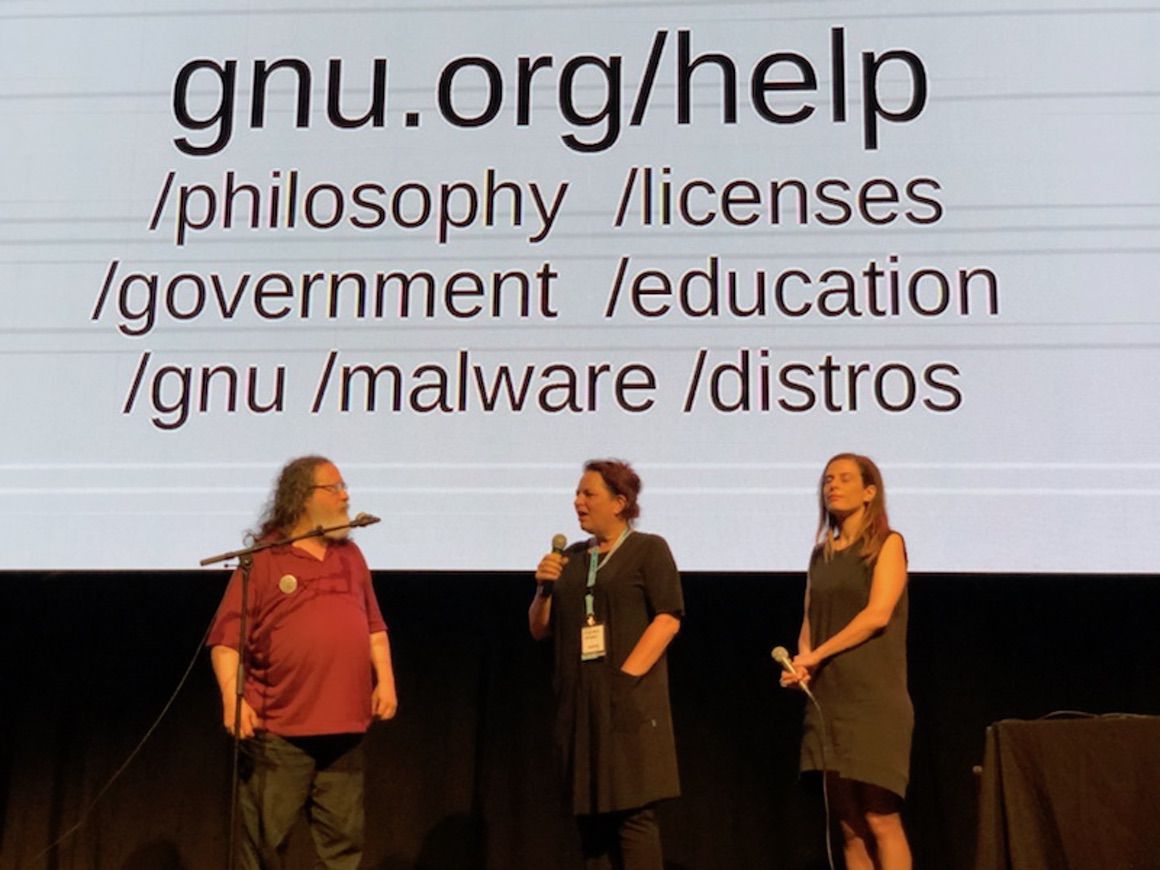
The end of the panel: with links to GNU.
Richard: “We’ve got to prohibit face recognition in the streets.”
10:58:10
Marleen: “We don’t want backdoors in our cities… what do we do?”
Richard: “use free software. Get rid of the Internet of Stings … they are designed to spy on people … Any product that works by talking to its manufacturer, treat it like an enemy … but the city can impose these things on people.”
Francesca: “this is part of GDPR…”
Richard: ”I’m afraid they won’t interpret that this way.”
10:54:01
Francesca: “public code, public money”
Richard: “non-free software is full of malicious functionality like backdoors. Microsoft has a universal backdoor on their operating systems.”
10:49:07
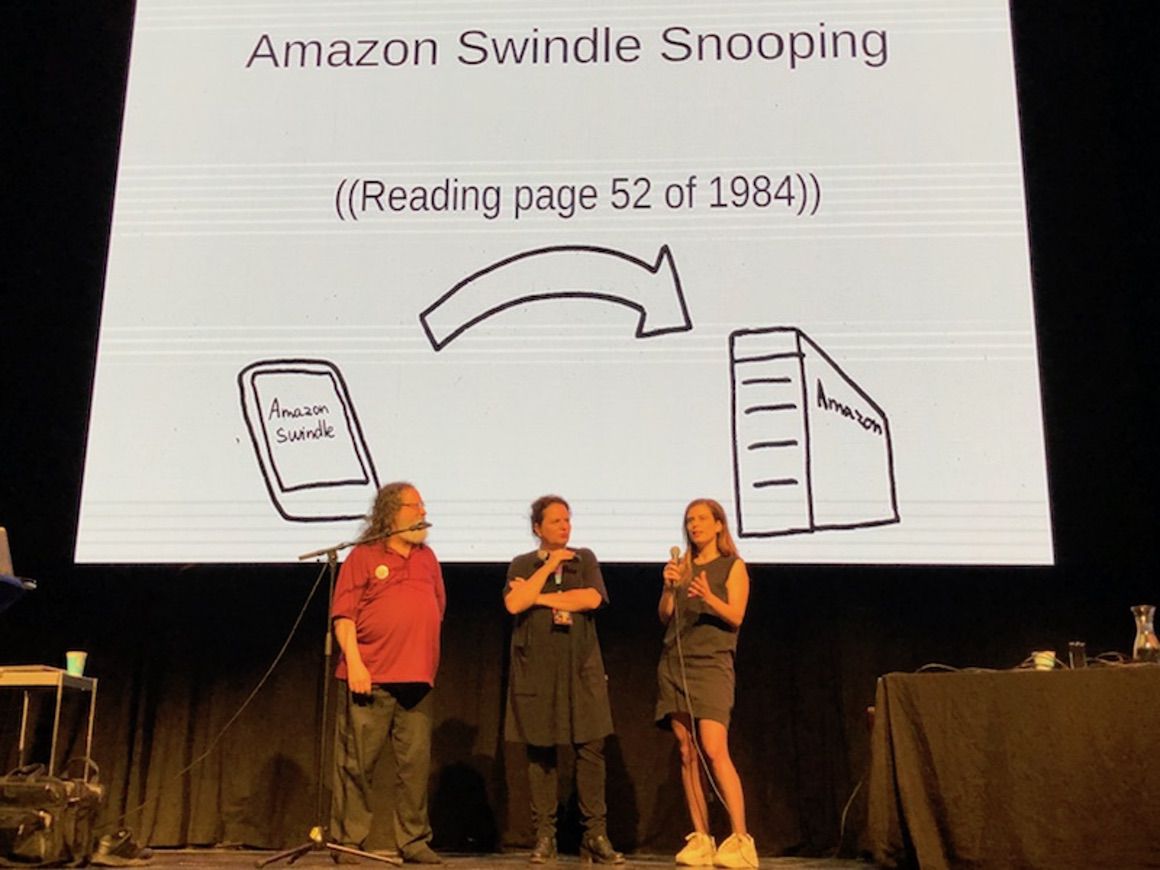
Richard, Marleen, and Francesca.
Richard: “With free software you have a free market for support.”
Richard suggests that Munich changed its mind about free software because Microsoft moved its headquarters there.
Richard: “It’s illegal to bribe an individual politician but it is not a crime to bribe an entire government.”
Richard: “The worship of the invisible hand is an absurd religion. You see all the suffering that religion has caused in the world. Neoliberalism … ‘trade treaties’ … they give foreign companies more rights than their own citizens.”
Richard: “There is a powerful force that says ‘business is important, freedom is not’. Most of the governments that talk about software stay away from any talk of ethics.”
10:44:05
Richard: “Whenever they say ‘smart’ in relation to computing, think ‘spy’”
Richard: “All I’ve done in working about Barcelona is to give some advice. I discuss the ethical questions. What is it legitimate to do? What is it wrong to do? You see, Barcelona’s City Hall is a government … evertthing they do is supposed to be for the people or it is not justified at all and that includes all computing they do … it must never allow that computing to fall into private hands.”
Richard: “If you let some company do your computing activity, that company controls your computing activity.”
(Richard’s asked if Marleen’s opinion that switching fully to free software in Barcelona will take 25 years… “is that too long?”)
Richard: “The point is not to save one year. The point is: don’t make it take a century.”
Francesca: “We are enshrining Richard’s values in municipal law.”
10:37:58
Richard: “Either the users control the program or the program controls the users. If users control the program, that’s called free software.”
(He’s now taking the audience through the four freedoms.)
“Non-free software should not exist. 100% of the money Barcelona spends should go to free software. People should not work on making non-free software. Making non-free software works to subjugate people.”
10:32:16

Richard Stallman takes the stage to talk about freedom in technology.
Richard’s on stage now.
Francesca: “we’re working with Richard in Barcelona … not many people know that without the work Richard has done we couldn’t be doing what we’re doing to rebuild the city and give control back to people. We are starting to use free software in public administration.”
Richard: “forget the term sharing economy … it’s mistreatment of workers – I call it the sweatshop economy. And don’t ever use Uber!”
Richard: “‘free’ in English is ambiguous. It means free as in cost and free as in freedom. When I use the word, I only mean ‘freedom’”
10:27:27
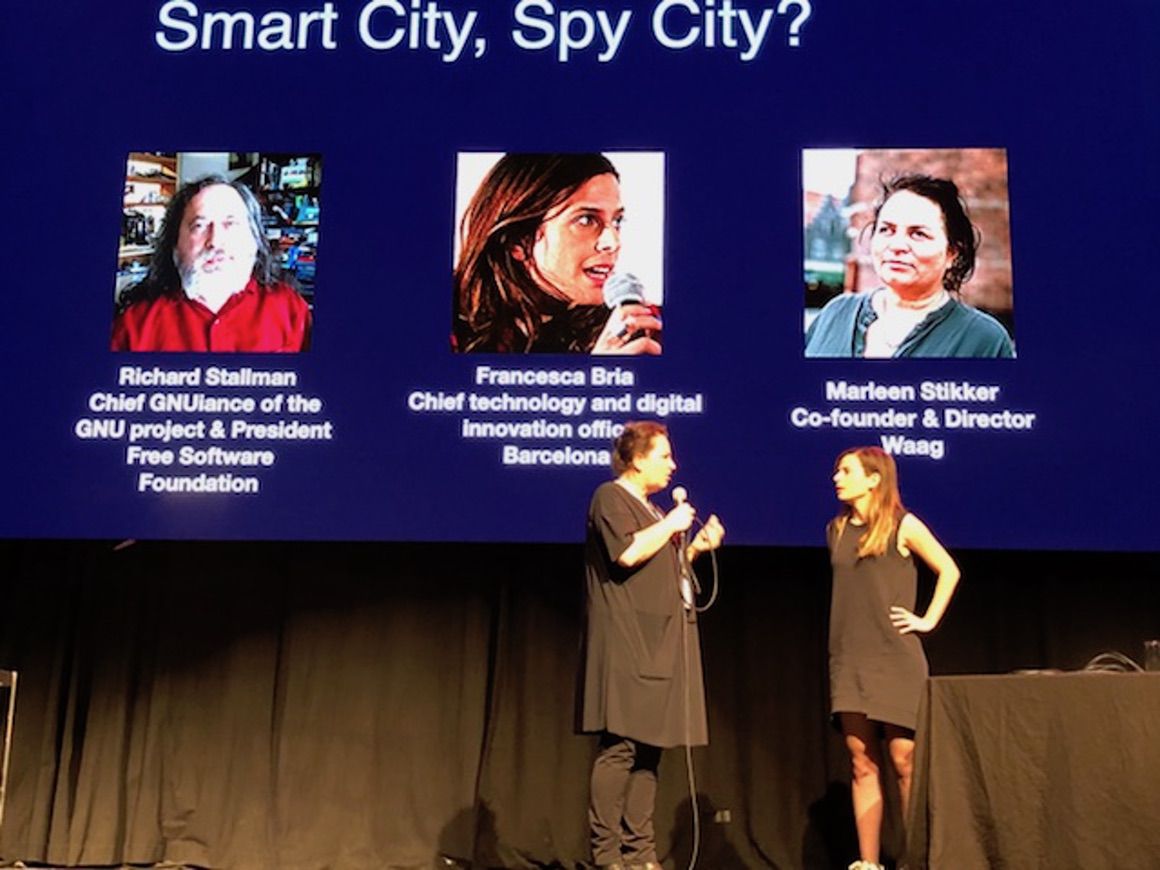
Marleen and Francesca talking about the work of the City of Barcelona in creating a commons-based city.
Following Marleen’s session, we are transitioning to a panel with Richard Stallman and Francesca Bria (CTO Barcelona).
Said hi to Richard before the event and he was very kind: “I read about what you’re doing in print.” (Richard’s not on stage yet.)
Francesca: “giving back sovereignty to citizens is a fundamental concern… we must move away from surveillance capitalism.” (I agree: individual sovereignty is a prerequisite for a healthy commons.)
10:15:41
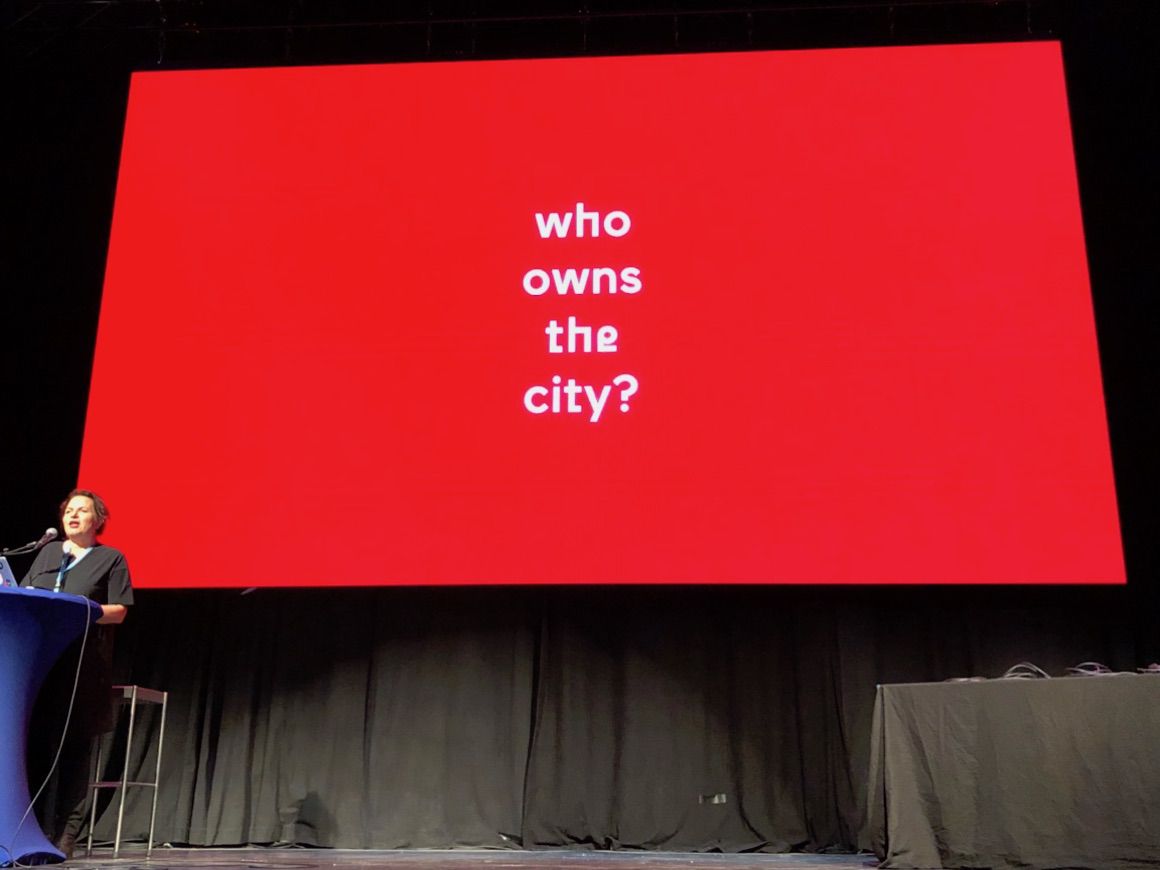
Marleen Stikker from Waag presents her opening keynote on the public stack.
Opening keynote: Marleen Stikker from Waag. (I’m here as Marleen’s guest and she’s awesome.)
“Who owns the city?”
“Do we want to be smart or do we want shared cities?”
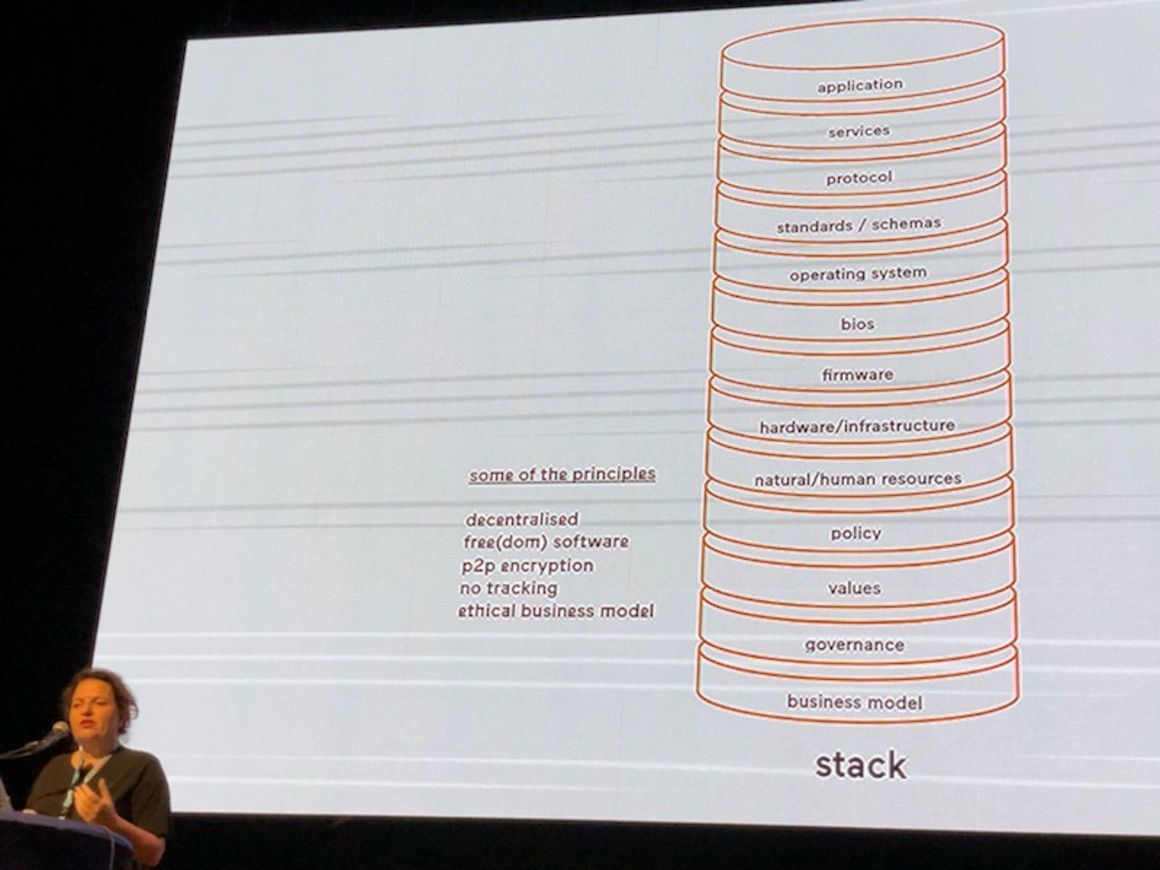
Marleen presenting the public stack we put together on the boat two days ago.
(I really want us to start talking about incentivising smart citizens not smart cities. The question to ask: “who’s getting smarter about whom?” If it’s corporations, cities, governments getting smarter about people, we are building a panopticon. If it’s individuals getting smarter about individuals then we have a system that is compatible with human rights, democracy, and a healthy commons.)
“It’s not just open… we need freedom in our technology.” (Stallman will be on stage soon.)
“In the last 25 years we lost the Internet to the market and it might take us another 25 years to reclaim it for the commons.” (Do we have 25 years? I feel we must do this much more quickly.)
10:11:24
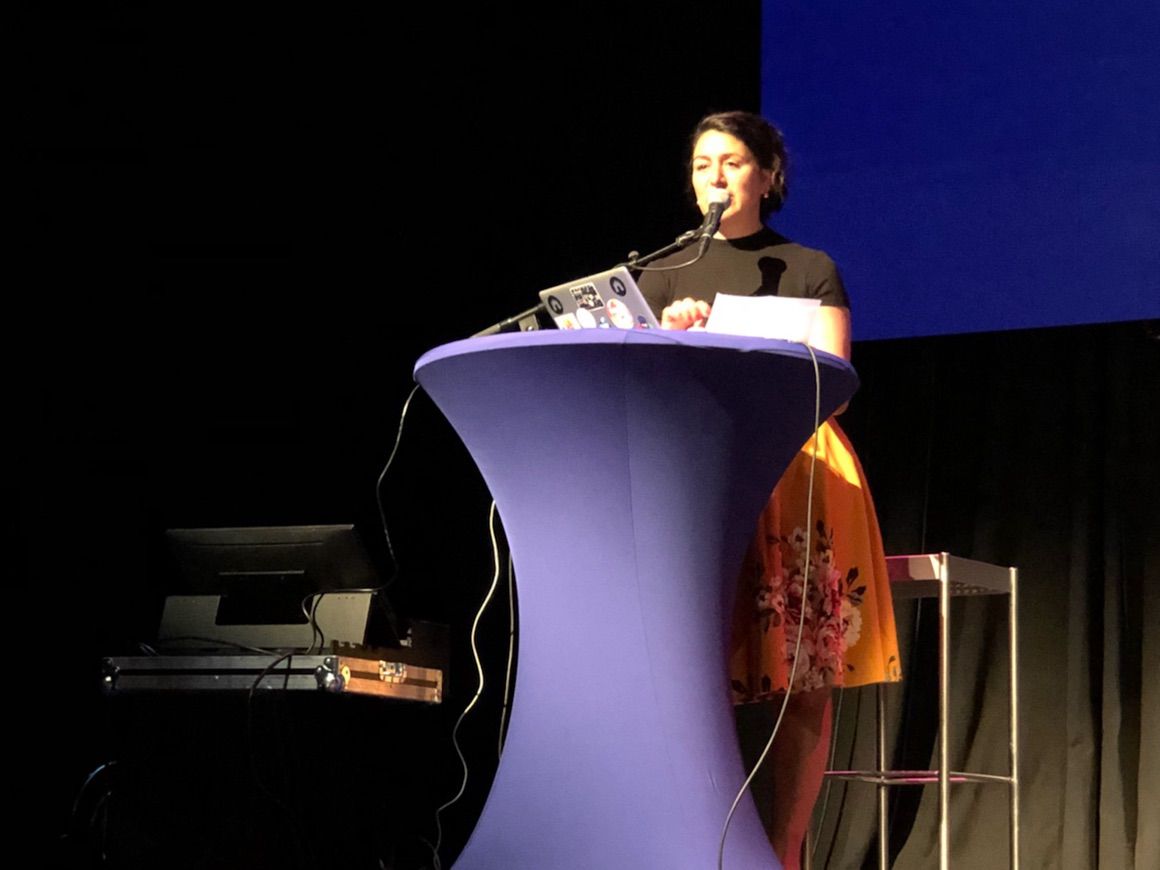
The deputy mayor of Amsterdam kicking off the day with her introduction.
I’m at the opening of the We Make The City event (Next Generation Cities). Right now, the deputy mayor is talking about where they see the “digital city” going forward. Introduces the “Amsterdam Innovation Tour” app.
A good time to remind the kind reader that “innovation” is a Silicon Valley/neoliberal mantra.